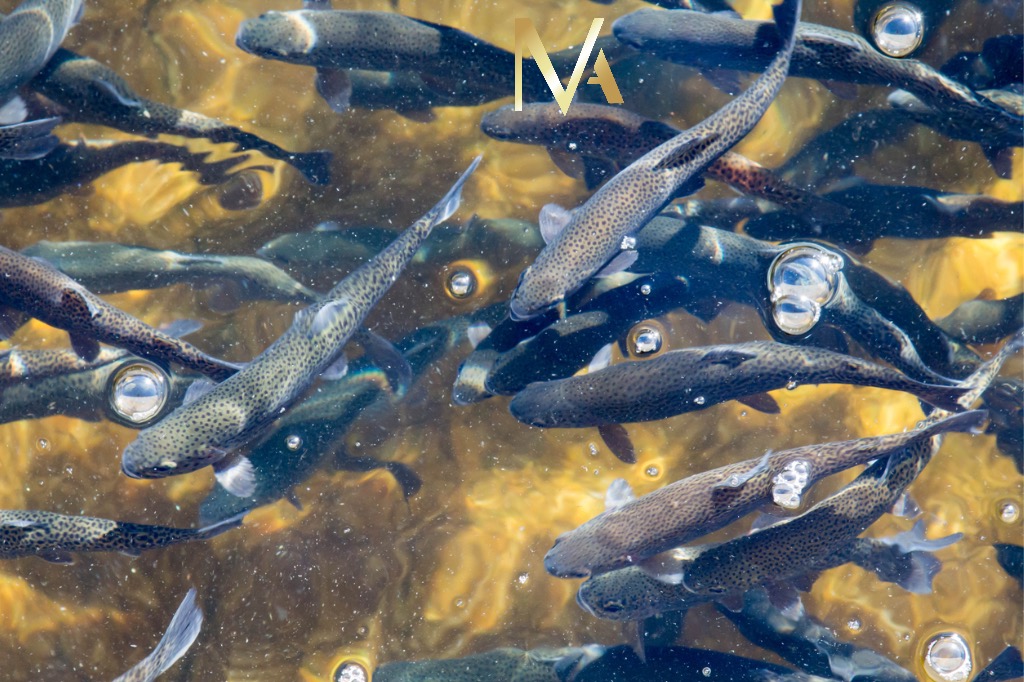Lesotho’s unique topography and environmental conditions have rendered it an emerging hub for high-altitude aquaculture, particularly trout farming. Nestled within the mountain ranges of the Southern African region, Lesotho’s abundant and pristine water resources offer ideal conditions for cold-water fish production. In recent decades, trout farming has evolved from a niche rural practice into a structured economic sector with tangible socio-economic and investment potential. This article considers the legal framework governing trout aquaculture in Lesotho, its economic implications, and the broader regulatory considerations critical to ensuring its sustainability.
The Lesotho Highlands region, with its consistent cold-water temperatures and elevated altitude, provides optimal environmental conditions for trout cultivation. The clean, oxygen-rich rivers and dams serve not only as a biological advantage but also bolster the marketability of Lesotho’s trout as a premium, environmentally responsible product. Given the country’s relatively temperate climate throughout the year, aqua culturists benefit from stable rearing cycles and predictable harvesting schedules, critical factors in meeting export market demands.
From an economic standpoint, the trout industry has already demonstrated significant capacity for rural employment and income generation. Fish farming projects, particularly those situated along the Lesotho Highlands Water Project corridor, offer employment in hatcheries, feeding operations, processing plants, and supply chain logistics. Moreover, there is growing international demand especially from the European Union and East Asian markets for responsibly farmed trout, creating avenues for foreign exchange earnings and regional trade integration.
However, the expansion and sustainability of this industry are inextricably linked to its legal governance. Lesotho’s trout sector is primarily regulated by the Fisheries Act and its subsidiary regulations. This legislation provides for licensing, quotas, aquaculture methods, and compliance mechanisms. Entities involved in trout farming must engage with the Ministry of Agriculture and Food Security, which plays a regulatory and facilitative role, including the issuance of aquaculture permits, oversight of operational standards, and support for policy development. Licences are typically subject to technical assessments, and renewals are contingent upon compliance with best practice protocols.
A further dimension of legal compliance lies in environmental regulation. Trout farming, like any form of aquaculture can pose ecological risks, including water contamination, disease proliferation, and harm to native species. Consequently, the Environment Act and its associated regulations mandate the completion of Environmental Impact Assessments (EIAs) for large-scale aquaculture operations. These assessments serve to evaluate the prospective ecological footprint of proposed projects and recommend mitigation measures. The incorporation of EIA findings into licensing decisions ensures a balance between economic development and ecological preservation.
In addition, water access and usage are governed by water rights regimes under Lesotho’s water law framework, particularly given the sensitivity of water resources implicated in the Lesotho Highlands Water Project. Trout farmers must secure formal authorisation for water abstraction, use, and discharge. Permits typically stipulate the volumes permitted, the location of water usage, and conservation obligations. This legal framework serves to manage competing interests among agricultural, industrial, and domestic users while safeguarding aquatic ecosystems.
Sustainability in the trout sector further requires biosecurity measures to mitigate the risk of disease outbreaks. Regulatory standards dictate best practices in stocking densities, water quality management, and quarantine procedures. The release of non-native species into Lesotho’s waterways is strictly regulated to protect the biodiversity of indigenous fish populations. Moreover, responsible feed practices such as sourcing sustainable alternatives to wild fish-based feed are increasingly being encouraged through both policy advocacy and consumer pressure in export markets.
Notwithstanding the progress achieved, the trout industry in Lesotho faces several operational and legal challenges. Infrastructure limitations in rural areas impede efficient transportation and increase production costs. While the government has invested in roads and rural electrification, consistent investment is necessary to improve market access and attract foreign direct investment. A further constraint is limited access to capital and insurance mechanisms for aquaculture entrepreneurs. Legal reforms and financial sector incentives could assist in de-risking the industry for both domestic and international investors.
Research and development (R&D) is another critical area for policy attention. The development of improved breeding strains, disease-resistant fish stocks, and cost-effective feed technologies would enhance productivity and global competitiveness. Public-private partnerships between the government, academic institutions, and private operators could drive innovation and resilience within the industry.
The legal trajectory of Lesotho’s aquaculture sector also points toward greater harmonisation with regional and international standards. As export volumes increase, compliance with the World Organisation for Animal Health (OIE) guidelines, Hazard Analysis and Critical Control Points (HACCP) frameworks, and sanitary and phytosanitary (SPS) measures under international trade law will be imperative.
In conclusion, trout farming in Lesotho represents a growing sector of strategic economic value, with significant potential to support livelihoods, attract investment, and contribute to national development. Its long-term success, however, is contingent upon a robust legal and regulatory environment that fosters sustainability, compliance, and innovation. By strengthening enforcement of the Fisheries Act, ensuring effective environmental safeguards, and facilitating access to water rights and financial services, Lesotho can consolidate its position as a regional leader in highland aquaculture. Legal practitioners, policymakers, and investors alike must view trout farming not only as an agricultural endeavour but as a regulated economic activity embedded within a dynamic legal framework.

